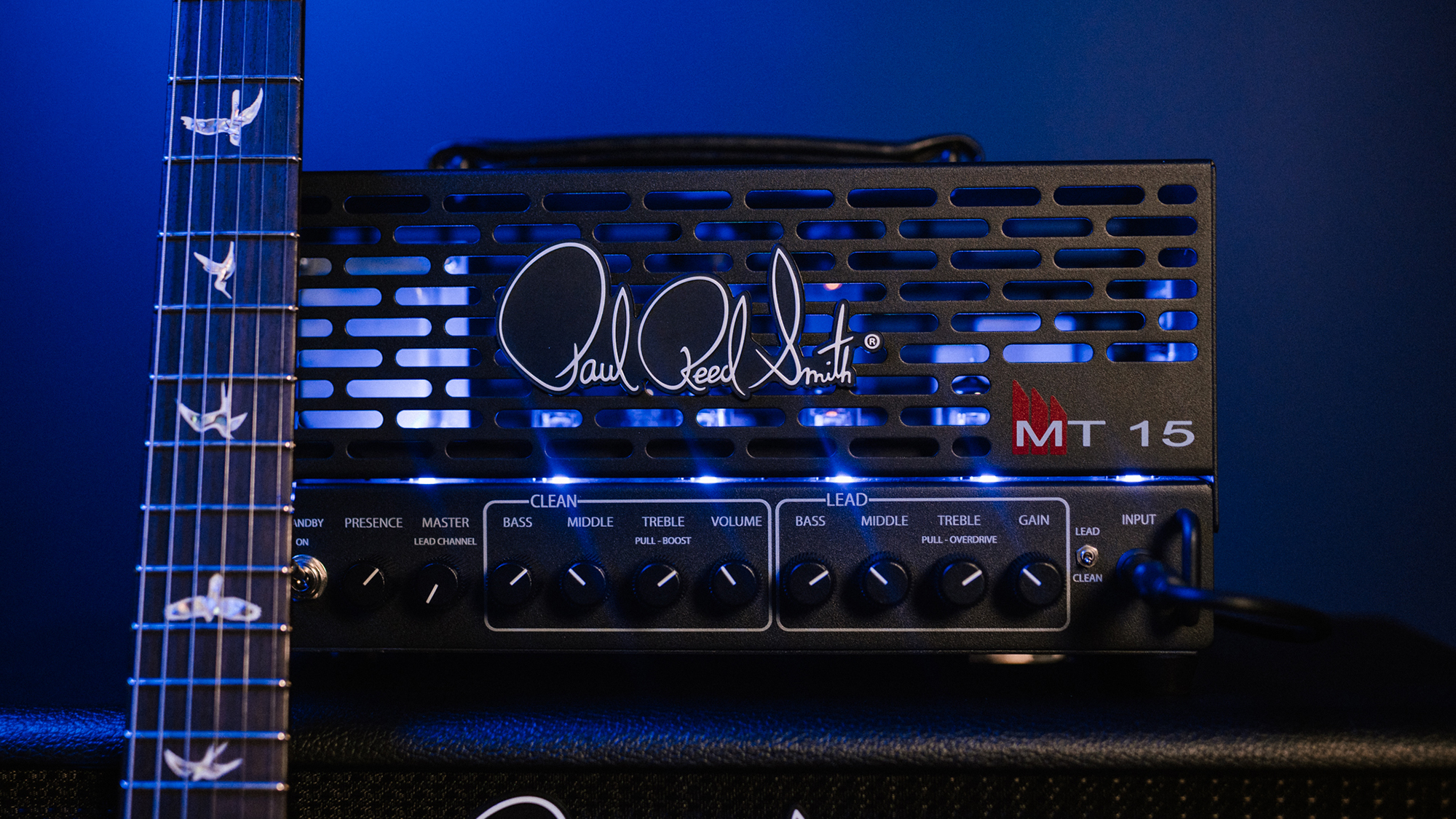Not sure what all those guitar tone buzz words mean? Get the lowdown with our jargon-buster
Fuzz this, intonation that – life can be confusing for the beginner player. This handy glossary explains what some of the most commonly heard terms mean
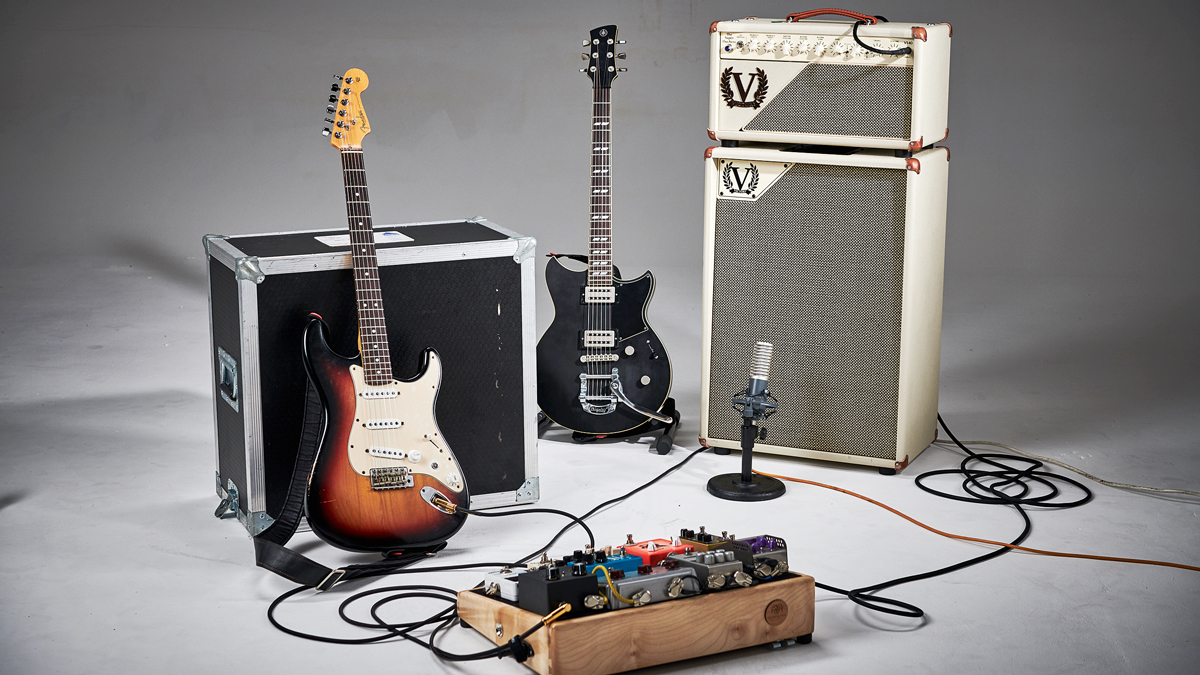
GUITAR SHOWCASE 2023: Jargon is everywhere, and the world of guitar is no different. There are the words that are tossed around like confetti that make little sense to the uninitiated, and for the beginner guitar player this gets confusing.
With this in mind, join us as we explain some of the most commonly used buzz words in guitar tone.
Amp channel
An amplifier increases a guitar’s electrical signal in order to reproduce the sound through a connected speaker. Many guitar amplifiers are equipped with separate audio signal paths (aka channels), usually voiced differently to produce a clean sound on one and a more distorted sound on the other.
British amp sound
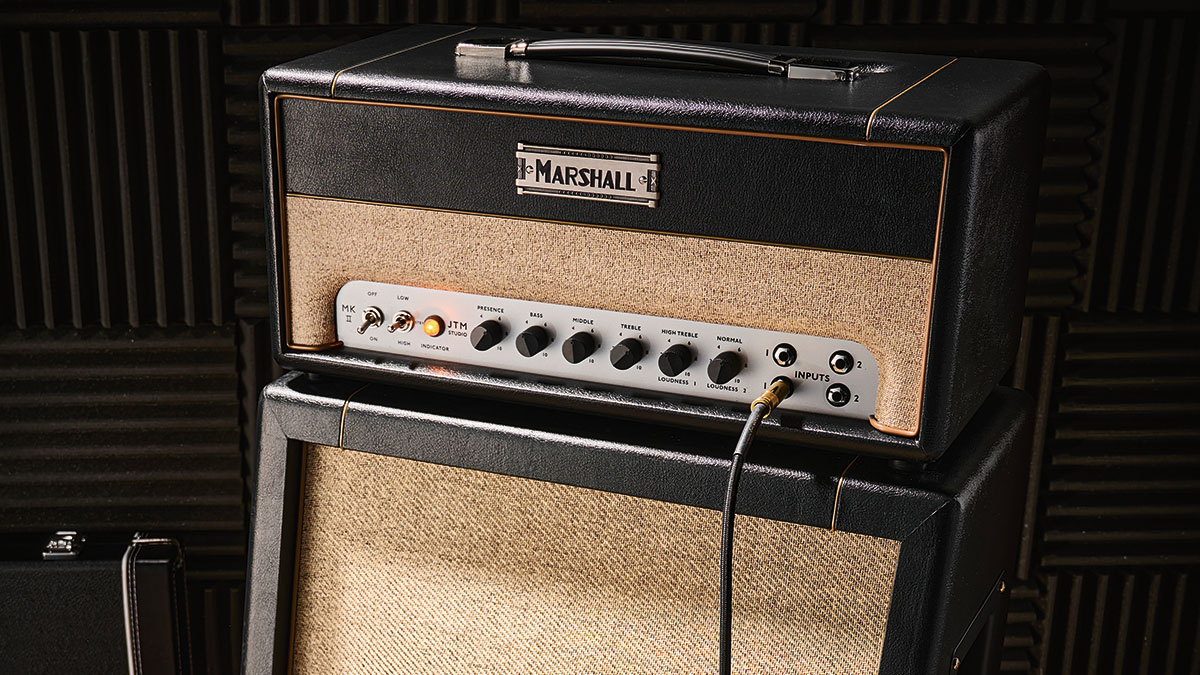
A catch-all term referring originally to the tones of British amp brands from the 1960s and ’70s such as Marshall and Vox. The former is renowned for the overdriven, saturated tones of the JTM and JCM series. Vox’s AC30 is noted for a cleaner, chimier sound as heard on music by the Beatles and the Shadows.
Delay
An effect that plays back an audio signal after a period of time. Typically, the pause ranges from a few milliseconds to one or two seconds. Most units allow for control of the number of times the signal is repeated and the level of said repeats.
Digital modelling
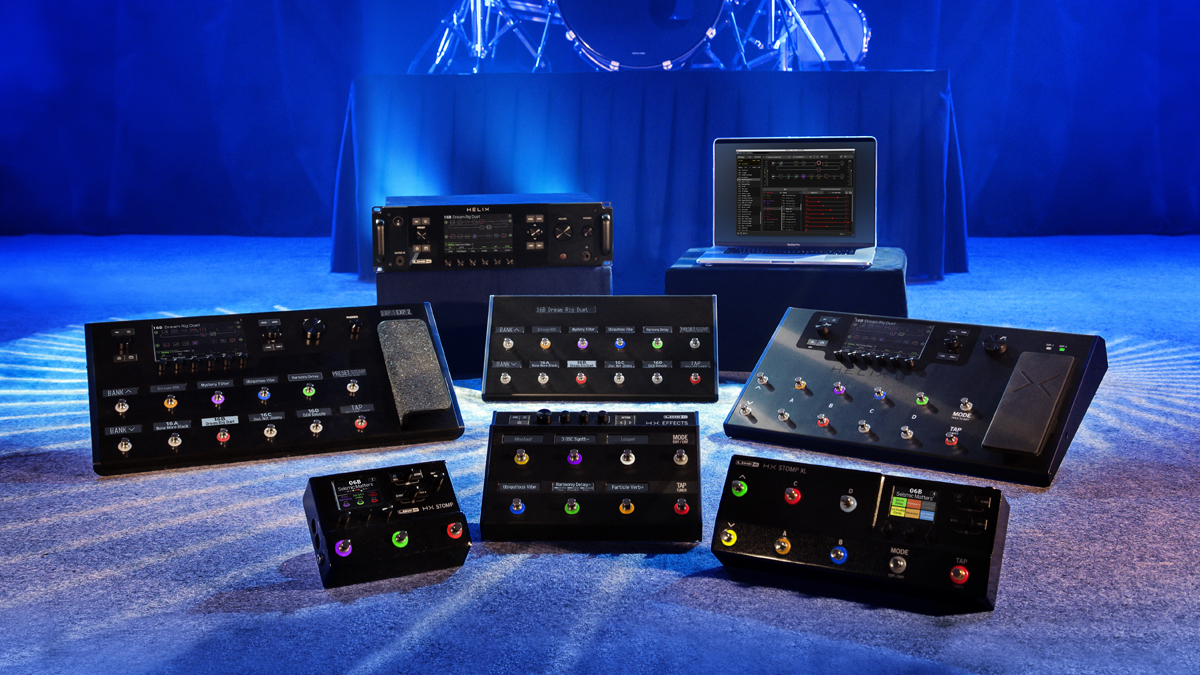
A process employing software to emulate the sound of other equipment, typically classic amplifiers and effects. Early examples include the Line 6 AxSys 212 modelling amp, the Line 6 POD multi-effect, and the Roland VG-8 virtual guitar system. A later innovation is Kemper’s profiling technology, which allows users to capture digital emulations of their own equipment.
Distortion
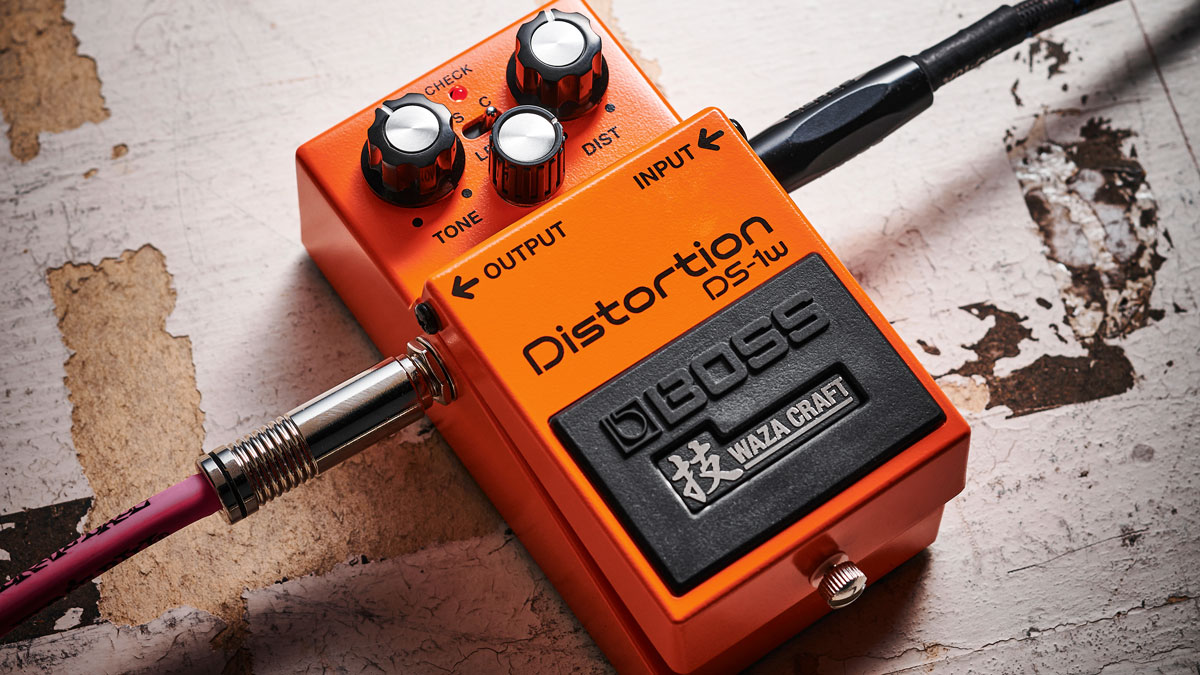
A form of ‘hard clipping’ signal processing produced, in general, by increasing gain. Various forms of distortion are employed, including overdrive for tube amplifiers or bespoke fuzz or boost units.
Get The Pick Newsletter
All the latest guitar news, interviews, lessons, reviews, deals and more, direct to your inbox!
Effects loop
This is a break in the signal chain between an amplifier’s preamp and power amp stages, allowing the user to insert audio effects. Subjectively, certain effects are said to sound better when connected within an effect loop as opposed to being placed before an amplifier’s main input.
Filter effect
Low- and high-pass ‘filters’ allow low- and high-end frequencies respectively to be heard, while a band-pass filter works within a predetermined frequency range and cuts low- and high-end frequencies on either side. A wah pedal is a manually controlled form of the effect. Other units use pre-set frequencies and timings.
Fuzz
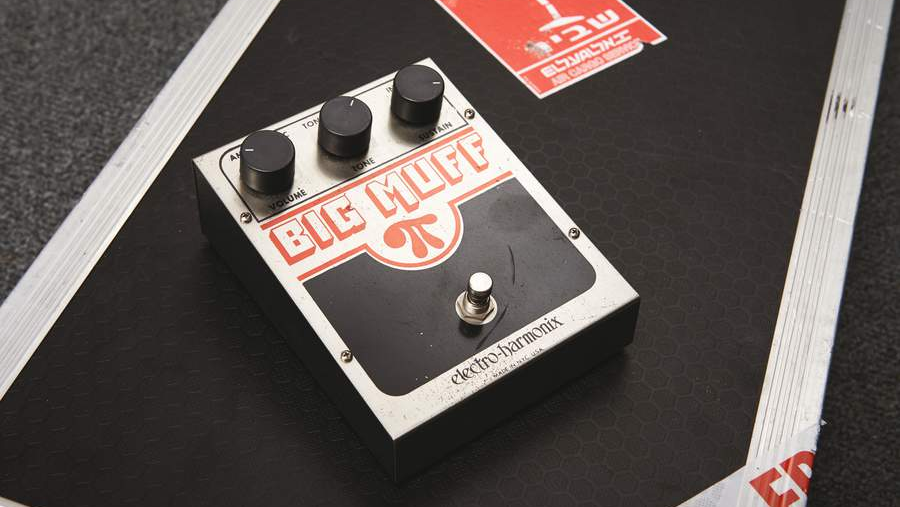
A form of distorted signal processing. Notable units include the Dunlop Fuzz Face, the Electro-Harmonix Big Muff and the Z.Vex Fuzz Factory.
Gain
An amplifier’s gain refers to how much it boosts the strength of the signal passing through its preamp. Typically, gain introduces a desirable form of distortion into the signal, increasing compression and sustain.
Humbucker
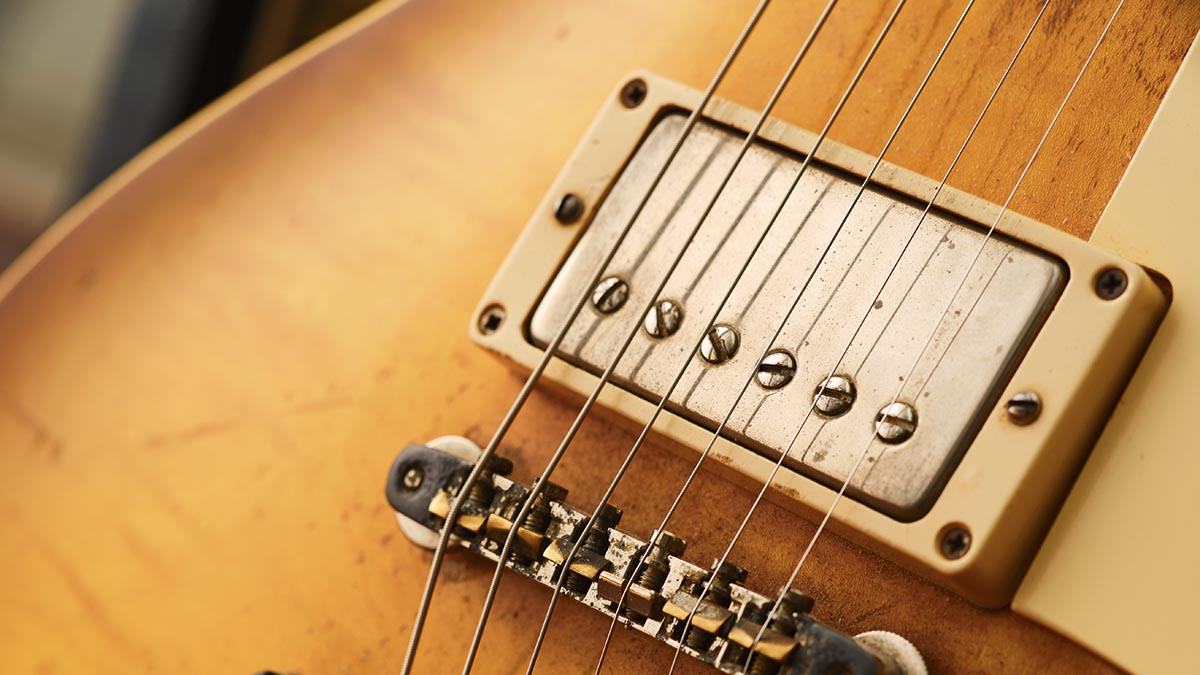
This is a magnetic transducer that uses two wire coils to convert the vibration of metal strings into an electrical signal, which is subsequently routed to an amplifier. The two coils are employed in order to cancel out hum inherent in single-coil pickup designs.
Intonation
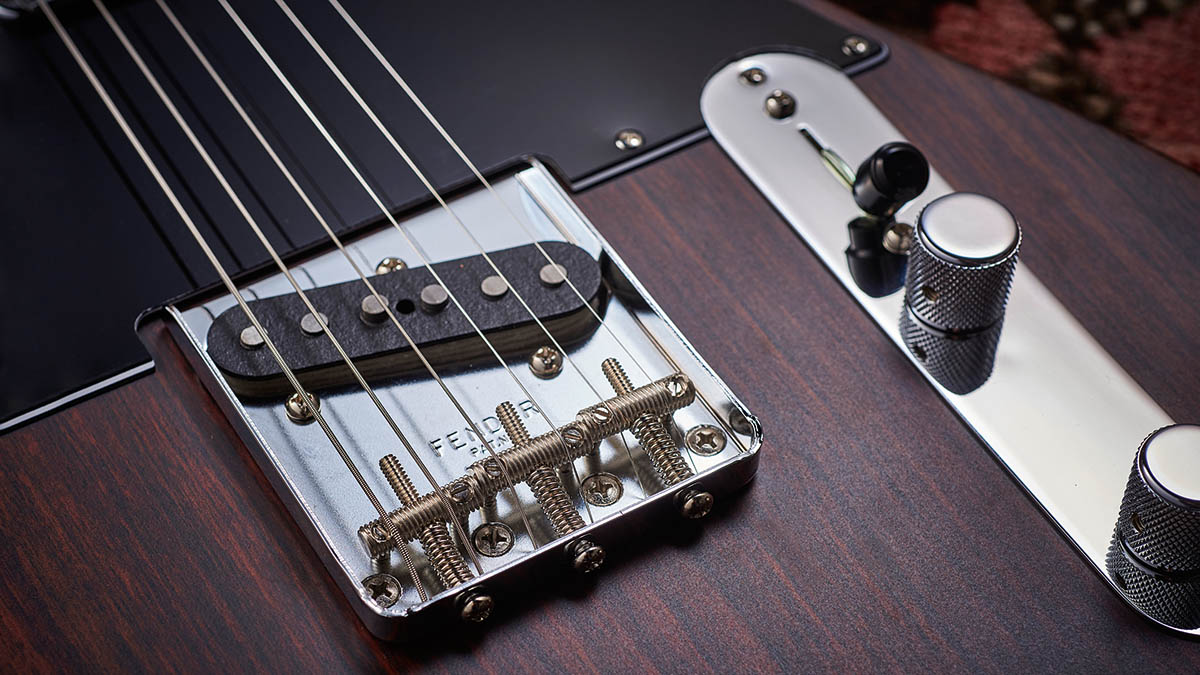
This is the fine tuning of guitar strings along the length of the fretboard. Typically, adjustments are made on a guitar’s bridge saddles.
Modulation effect
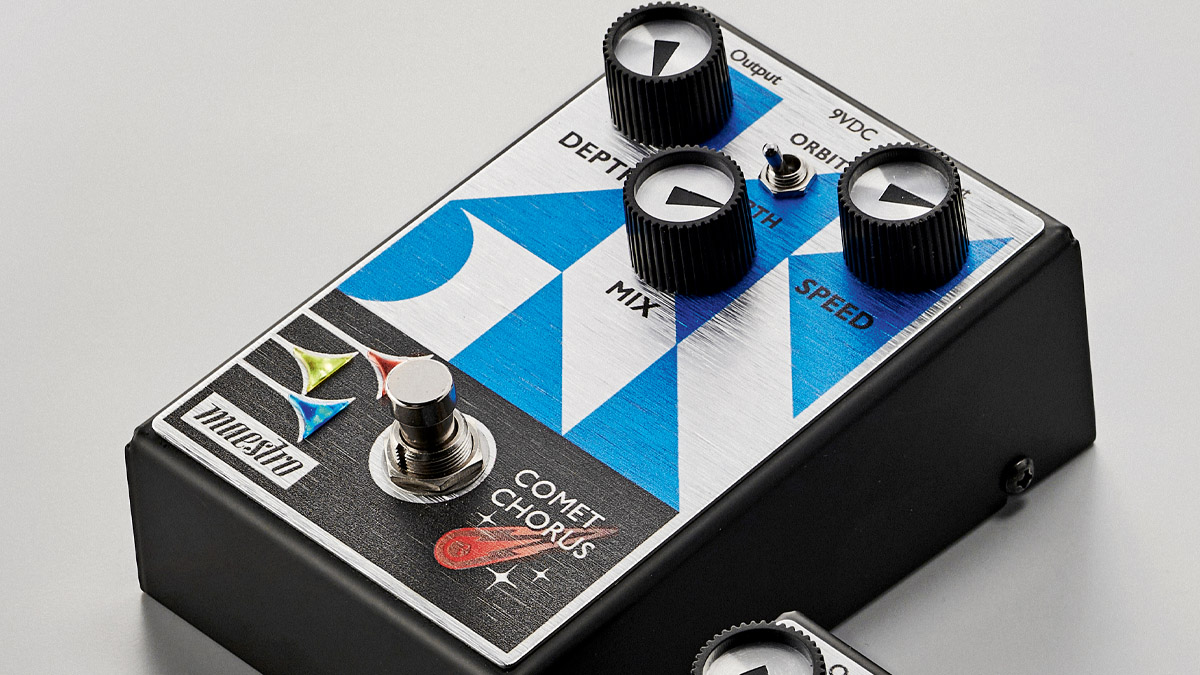
A category of effect encompassing tremolo, phaser, chorus, flanger, vibrato and ring modulation.
Multi-effects
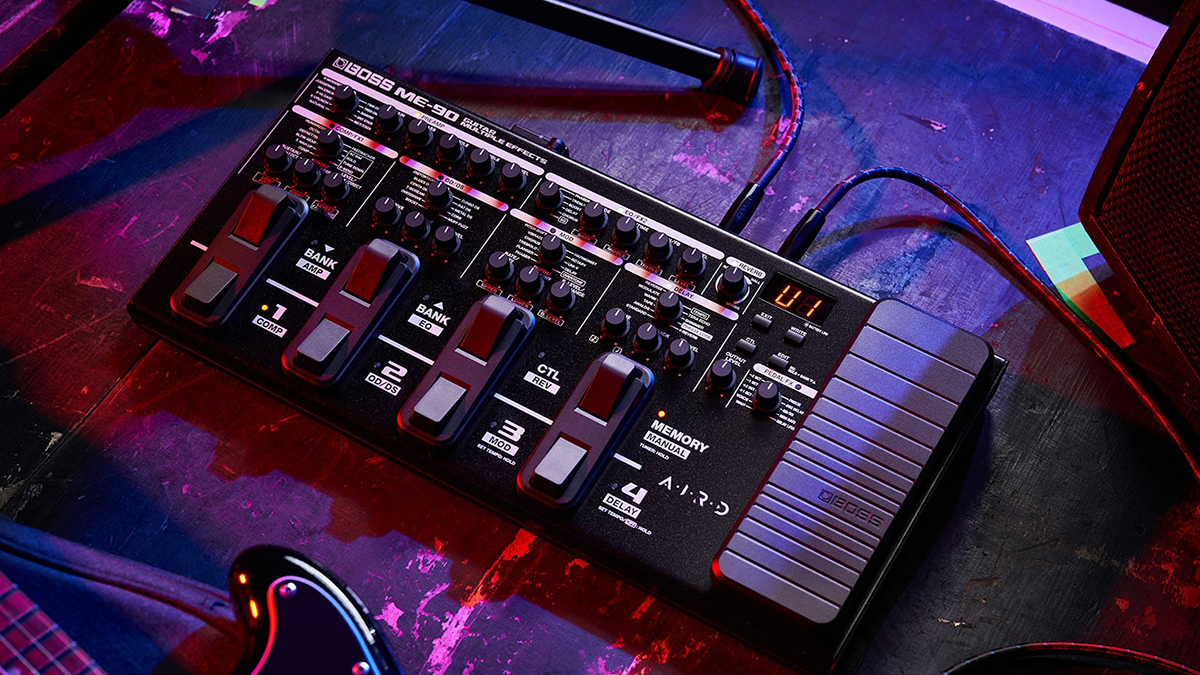
Multi-effects pedals are equipped with many commonly used guitar effects, with some flagship units including extensive ranges of digitally modelled classic desirable stomp boxes and studio effects, alongside amplifier, microphone, speaker and cabinet models.
Overdrive
This form of distortion boosts the guitar’s gain with the aim of driving a valve amp into clipping. Where, in general, distortion and fuzz pedals use harsh-sounding ‘hard clipping’, overdrive employs soft clipping for a smoother sound.
Pitch-shifter
This raises or lowers the pitch of an audio signal. Most units offer pre-set pitch changes and harmonising abilities. DigiTech’s Whammy utilises a treadle for dynamic pitch shifting.
Reverb
The reflection of sound in a space. Reverb effects are recreations of this phenomenon using various technologies such as spring reverb, plate reverb and digitally modelled reverb.
Scooped tone
The practice of lowering the midrange setting in the EQ. Bass and treble frequencies remain at medium/high settings.
Single coil pickup
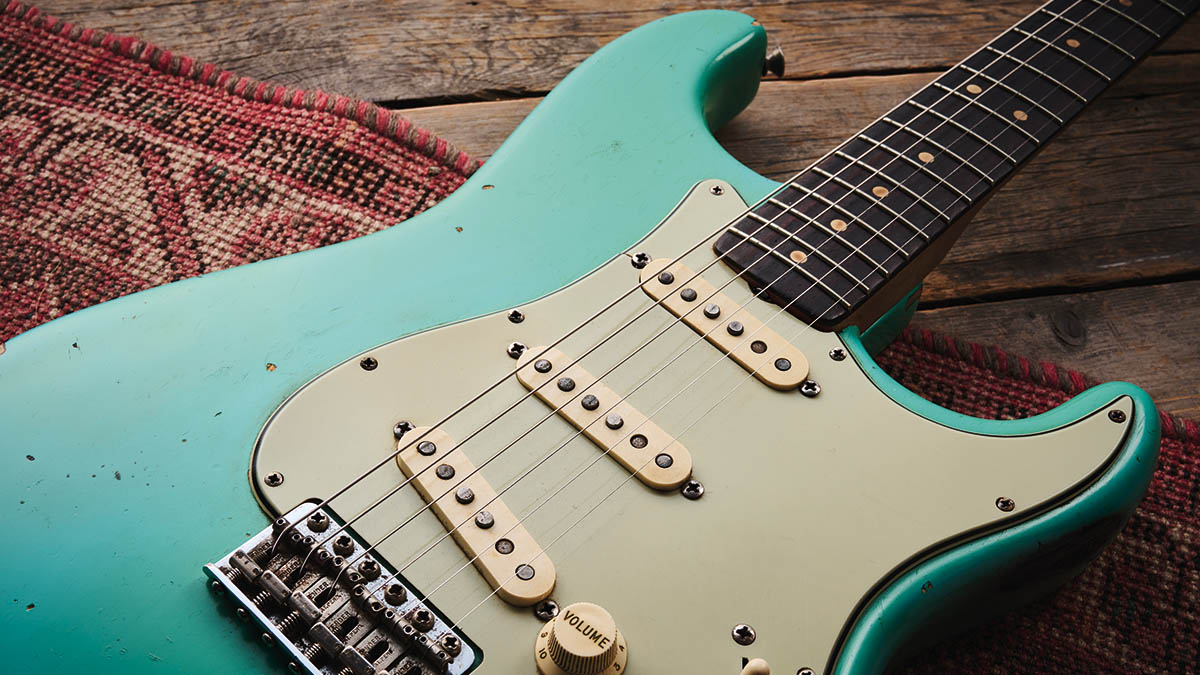
This is a magnetic transducer that employs a single wire coil to convert the vibration of metal strings into an electrical signal, which is subsequently routed to an amplifier. Notably seen on the Fender Stratocaster.
Unity gain
The idea that an output signal’s level is equal to its input level. In practical terms, this might refer to ensuring an effect pedal doesn’t significantly alter volume when switched on compared to when it is bypassed.
US amp sound
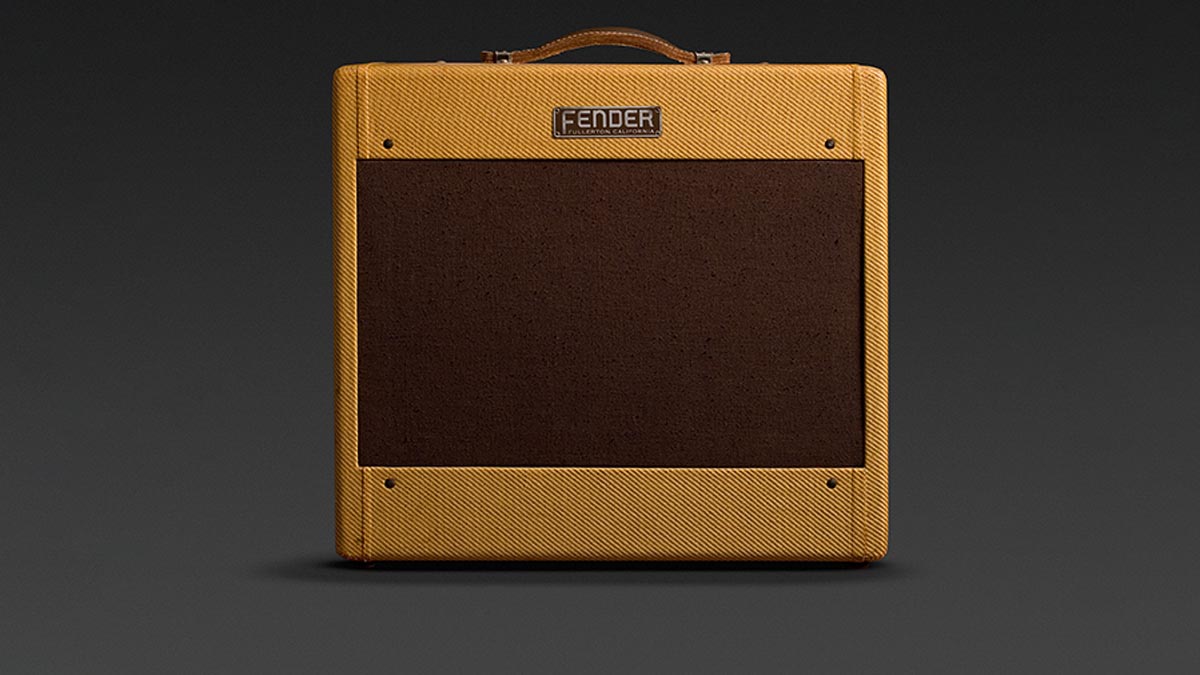
A catch-all term referring originally to the tones of US amp brands as far back as the 1950s, notably Fender, and then in the ’70s and ’80s with Mesa/Boogie. Early Fenders are renowned for wide dynamic range and clean headroom. Mesa/Boogie became associated with high gain tones, notably used by Metallica’s James Hetfield and Kirk Hammett.
Chris has been the Editor of Total Guitar magazine since 2020. Prior to that, he was at the helm of Total Guitar's world-class tab and tuition section for 12 years. He's a former guitar teacher with 35 years playing experience and he holds a degree in Philosophy & Popular Music. Chris has interviewed Brian May three times, Jimmy Page once, and Mark Knopfler zero times – something he desperately hopes to rectify as soon as possible.
"Upgrading from your entry-level acoustic opens the door to an entirely new world of tonewoods, body shapes, and brands": 6 signs it's time to upgrade from your first acoustic guitar
"I'm past my prime": 5 common excuses for not learning the guitar – and 5 body and mind-boosting reasons you should





![John Mayer and Bob Weir [left] of Dead & Company photographed against a grey background. Mayer wears a blue overshirt and has his signature Silver Sky on his shoulder. Weir wears grey and a bolo tie.](https://cdn.mos.cms.futurecdn.net/C6niSAybzVCHoYcpJ8ZZgE.jpg)

![A black-and-white action shot of Sergeant Thunderhoof perform live: [from left] Mark Sayer, Dan Flitcroft, Jim Camp and Josh Gallop](https://cdn.mos.cms.futurecdn.net/am3UhJbsxAE239XRRZ8zC8.jpg)




